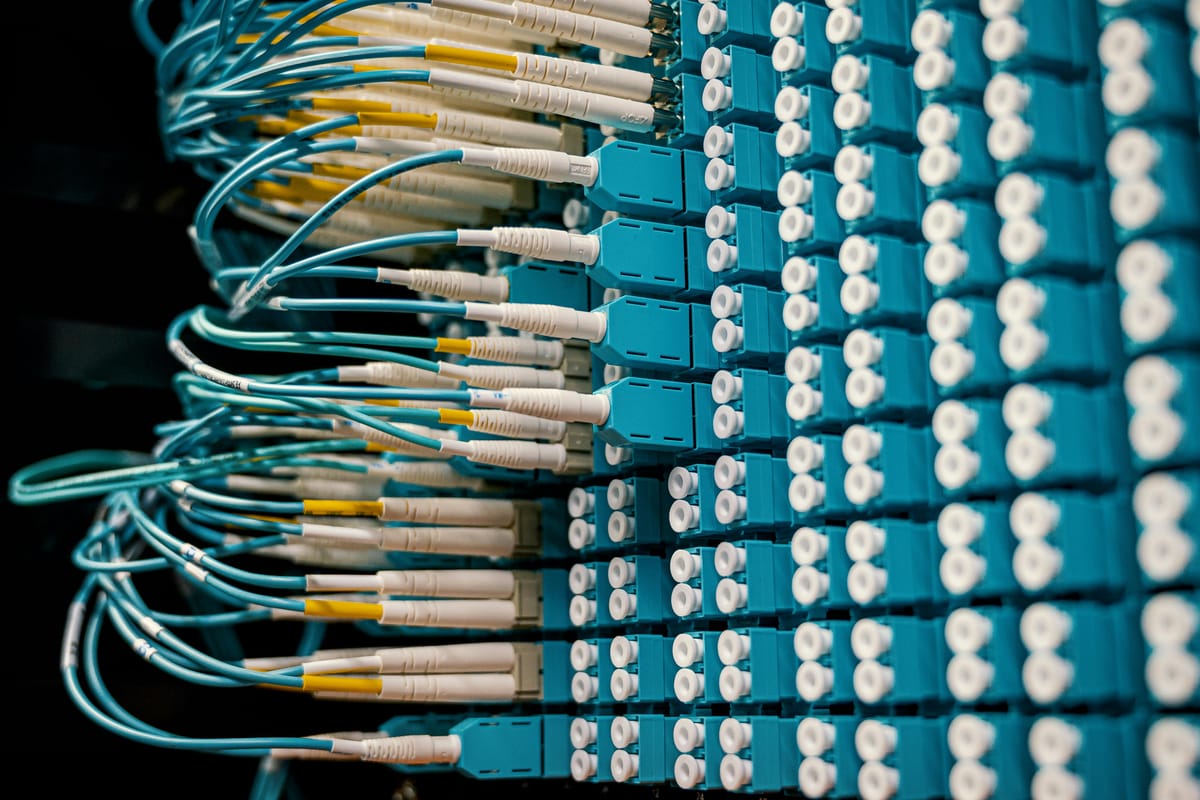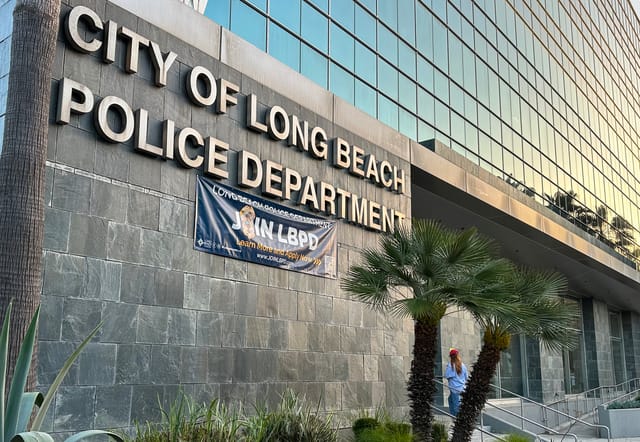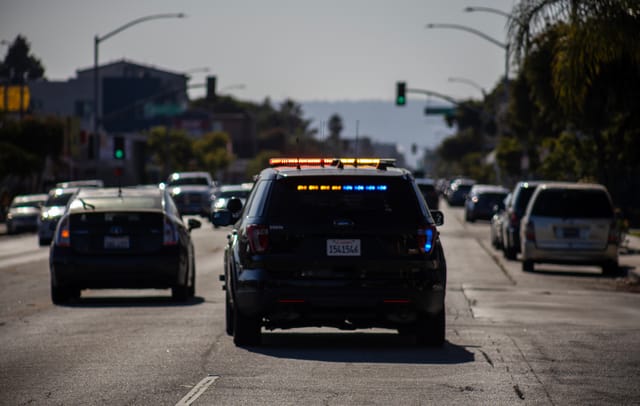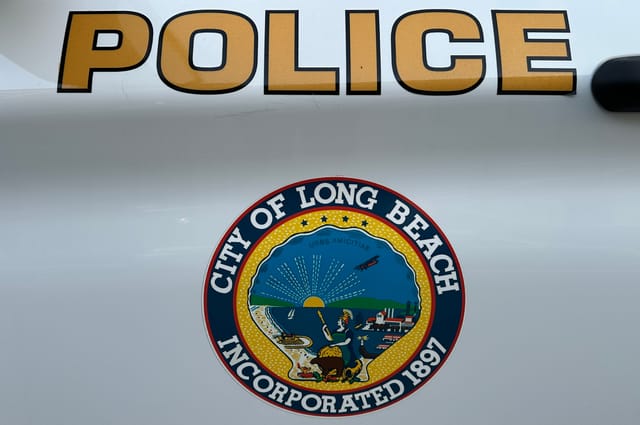Critically Speaking: We've chipped away at the Digital Divide
But the end of a federal subsidy could make things worse in Long Beach.

We live in a world where you can do literally anything through the internet.
Shop at Costco? Yep. Order in from your favorite restaurant in the city? Check, though I prefer to pick up my orders in person. You can even track when your dog is being walked by a sitter and how many times they’ve “done their business” via an app.
But there are also a growing number of things you need the internet to do. Or at least being connected to the web makes them more convenient. I’m talking about paying your bills, getting updates from your local government about important announcements or applying for and interviewing for jobs.
Not everyone in Long Beach has the ability to do these things because they lack an internet connection, a computer, or both.
This has been called the “Digital Divide” because it’s literally a separation of the portion of our community that has access to quality internet and those who have to struggle to find connection points in the city to try and keep up in an increasingly online world.
During the COVID-19 pandemic this problem was lessened through the Affordable Connectivity Program (ACP), a federal initiative that subsidized monthly internet bills, which typically saw the government cover about $30 of a household’s bill as internet commerce and virtual meetings became more necessary.
However, that program ended in May and about 60% of Long Beach households lost that subsidy, which could put their ability to afford an internet connection in jeopardy, according to a presentation given to a city commission this week.
“We don’t have good data, but we know that a lot of households are struggling now,” said Estefania Zavala, the city’s Digital and Equity Economic Inclusion Officer.
Zavala said the city is advocating for the ACP to be extended.
Long Beach is not unique when it comes to internet affordability issues and portions of its population being cut off from web access at least partially because of cost. Every Southern California county had over nearly half their households enrolled in the ACP, according to state data published by the Public Policy Institute of California.
In total, more than 2.9 million Californians and 23 million Americans lost access to that aid when the ACP ended earlier this year.
But this problem was present before the pandemic.
In 2017, I was part of a team of journalists across multiple Long Beach publications that came together to highlight the issues of the digital divide in the city. Some might say that our work prodded the city to take up the issue in 2018.
Our series “Strengthening the Signal” explored a broad spectrum of issues like how the lack of competition among internet service providers (ISPs) might be contributing to high prices for relatively poor service.
The series highlighted how some students are forced to do their homework at city libraries so they can utilize the free internet there and how those who can’t make it to a city library sit outside their local Starbucks during open hours or complete assignments on their phones because they don’t have computers at home.
We also looked at what cities across the country are doing to address the issue with the bellwether being Chattanooga, Tennessee, which built out its own municipal internet service that blasts out gigabit speeds for less money than most Long Beach residents are paying.
For context, a gigabit connection is about 10 times faster than the service I pay for, or 20 times faster than the service I’m actually receiving, according to a speed test I just ran.
Long Beach has made progress in closing this divide since 2017 when it was estimated that about one in six households in the city lacked access with most of those being concentrated in underserved communities in west, central and north Long Beach.
The city has closed the gap with the number of households reporting they don’t have internet access or a computer down across nearly every ethnic group between 2019 and 2022, according to city data.
This has meant the city committing to giving out free hotspots, devices and other programs aimed at closing the divide. And the city has committed ongoing funding to digital equity, structurally funding the office in 2023.
But how much damage will the end of the ACP wreak on these achievements?
Long Beach is about to send its estimated $17 million fiberoptic network expansion job out to bid, which will add miles of “backbone” to the city’s high-speed network and connect all city buildings, but it won’t directly benefit households.
The municipal network option ($182.5 million) was deemed prohibitively expensive, which puts the future of accessibility in the city on ISPs offering lower rates or better service and the city’s ability to advocate for legislation, grants or other creative solutions to keep as many people as possible connected to the web.
What happened this week:
The global economy has made the world a lot smaller and that means a strike on the East Coast could have ramifications for people who live on the West Coast. Like us! This week, East Coast dock workers began a strike that had no projected end date and could have put the ports of Los Angeles and Long Beach in a position to have to process additional cargo. My colleague Brandon Richardson broke the situation down in a story this week. But a crisis has seemingly been averted as reports Thursday evening said dock workers are expected back at work Friday after their union punted the strike to mid-January to give more time for negotiations. Now, this isn’t an invitation to run to the grocery store and prepare for armageddon, the news Thursday should mean some sense of normalcy through the holiday season. It's something to keep track of but let's not replicate the panic buying of the early pandemic. There's plenty of toilet paper to go around.
Something to keep an eye on:
It’s almost election season and you should be receiving your ballots soon. As promised, the Watchdog is committed to helping you make informed decisions when casting your votes this November. This week, we took a look at Measure LB, a proposal that could end a tax exemption for two power plants in the city, and what it could mean for you. Make sure to check back in the coming weeks for future editions of our “On the Ballot” series.
We need your support.
Subcribe to the Watchdog today.
The Long Beach Watchdog is owned by journalists, and paid for by readers like you. If independent, local reporting like the story you just read is important to you, support our work by becoming a subscriber.





